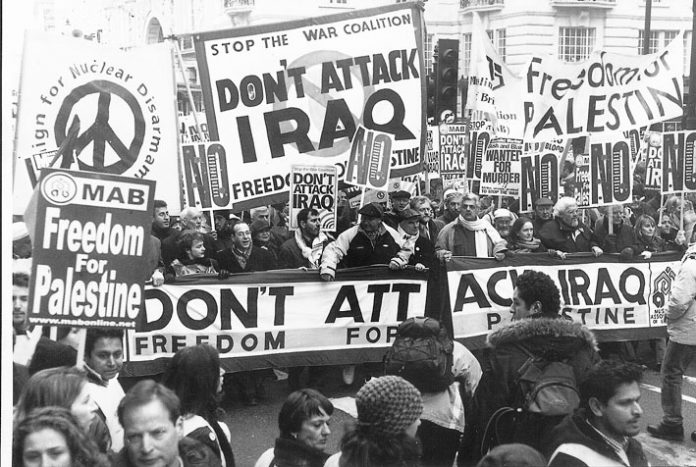
JUST before Jack Straw appeared before the Chilcot Inquiry yesterday, he released a 25-page memorandum which explained that his decision to support the Iraq war was the hardest of his life.
Straw added that he understood if he – then the Foreign Secretary – had refused to support the war, then the Cabinet would not have supported it and neither would have parliament.
‘I made my choice. I have never backed away from it and I do not intend to do so, and fully accept the responsibilities which flow from that,’ Straw’s memorandum concluded.
Under questioning at the Iraq Inquiry yesterday afternoon, and under some pressure, he said he wished some of its hearings could have been in private.
Sir Roderic Lyne said to Straw: ‘As you and Sir Peter Ricketts argued in March of 2002, objectively the threat from Iraq had not worsened as a result of 9/11 but what had changed was the tolerance of the international community and especially the United States.
‘Is that summary right?’
Straw replied ‘Yes’. He continued: ‘There was a consensus across the world that a policy of simply tolerating failing and failed states was unacceptable and there was a stark example on Afghanistan.
‘To be blunt, the West had helped to create the monster of the Taleban by funding the mujahideen in Afghanistan against the Soviets.
‘The perception of the risk changed from 11th September.’
Lyne continued to ask about ‘Our failure to anticipate the situation after Saddam was toppled. Did we fail to anticipate it.’
Straw replied: ‘What we anticipated were different problems.
‘We thought there’d be quite a long and protracted military phase because there was this absolute profound belief that Saddam still had chemical and biological weapons which he could deploy, that the Saddam Hussein regime had some kind of consent from the Iraqis and that the losses might be significant.’
He added: ‘The problems at the end of a rather short military phase could have been avoided with better planning, above all in Washington.’
Lyne asked: ‘You’ve said very strongly our foreign policy objective was not regime change, was that also the Prime Minister’s view?’
Straw replied: ‘None of us liked the Saddam Hussein regime and if there could have been some way of ridding the world and Iraqi people of that regime that would have been right. I don’t want anything I say to be misunderstood.
‘They were odious, if we could have helped opposition groups to take a bite at them, if sanctions could have achieved that, that would have been great, but that was not on the menu.
‘What was being discussed was military action by the United States . . . with the possibility of military action only involving the United Kingdom.
‘Military action could not be an objective of British foreign policy or be disguised as an objective of British foreign policy.’
Lyne reminded Straw that in the interview on December 13 with Fern Britton in which Blair was asked, ‘if you’d known then there were no WMDs what would you have done’, Blair said he would still have thought it right to remove Saddam Hussein.
He went on to say he would have had to use different arguments.
Lyne asked what was Blair’s position.
Straw parried the question, replying: ‘The best way to find that out is to ask him. We’re two different people.’
‘But in one government’, responded Lyne.
Lawrence Freedman asked: ‘You speak in your memorandum about why you were convinced there were stocks (of chemical weapons) there?
‘Sir David Omond told us yesterday if you looked hard at the intelligence base for the propositions being put forward, your reaction might have been is that all there is.
‘You at some point used the word thin to describe the quality of the intelligence, is that fair?’
Straw replied: ‘If you say I used the word, then I take your word for it.
‘My perception was . . . the case for taking Iraq seriously was in no sense based on intelligence alone.
‘The intelligence supplemented what we knew already about the threat. There was no reason whatever to disbelieve the intelligence and I don’t think there was a single piece of intelligence that said actually the judgements that have been made in the international community are all wrong.’
Straw continued: ‘Intelligence is secret and held tightly, it’s little bits of information. However, all the little bits of information, however patchy and sporadic, all pointed in one direction and not one I ever saw pointed in the opposite direction.’
Freedman commented: ‘An expectation was created there was much more possibly behind these statements of the British government than was inevitably going to be the case.’
Freedman continued: ‘You were dealing with a political perception within the Security Council that something more was required and this was a difficulty all the way through, people were expecting to see more.’
Straw responded: ‘Everybody was expecting to see more.’
Freedman persisted: ‘Let me quote David Omond again from yesterday where he said talking about the SIS, that they overpromised and undelivered on the intelligence and I think you were saying at this time reality has not matched the expectation generated by the intelligence.
‘That there was a problem that as the inspectors went in where one might have expected to find things, these were not being found.’
Straw concluded yesterday: ‘Did I think I would have to resign over this? No, I didn’t.
‘Did I understand the nature of the responsibilities on me. Yes, for sure, and weighed them very heavily.
‘I did so very reluctantly, but on what I judged to be the best evidence available at the time. . . and that’s my responsibility.’